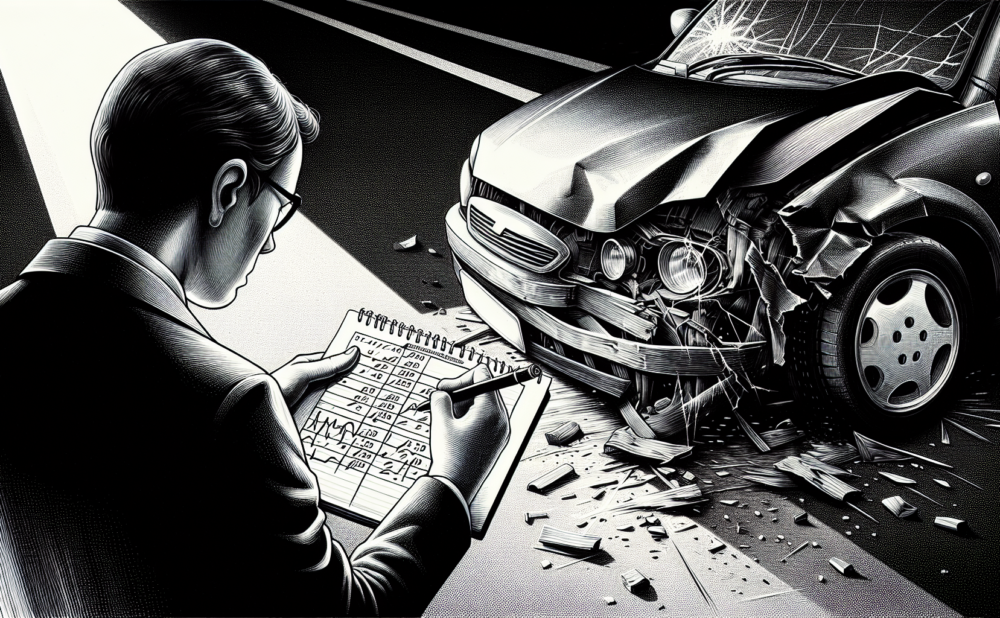So you want to know how to settle a car accident claim without a lawyer? You’re not alone. Many do it to save on legal fees and to be in control of the negotiation process. This article will walk you through step by step so you can manage your claim with confidence, from calculating damages to writing a demand letter to negotiating with insurance adjusters. With the right preparation you can get a fair settlement on your own.
Bottom Line
-
Settling a car accident without a lawyer means self evaluating damages, writing a demand letter and negotiating strategically which can save you legal fees and time.
-
Dealing with insurance companies without a lawyer means understanding their negotiation tactics, documenting everything and expenses and knowing the statute of limitations to make a claim.
-
While you can manage a car accident claim on your own, serious or complex cases may benefit from a lawyer who can get you a higher settlement and navigate litigation better.
Managing Your Car Accident Without a Lawyer
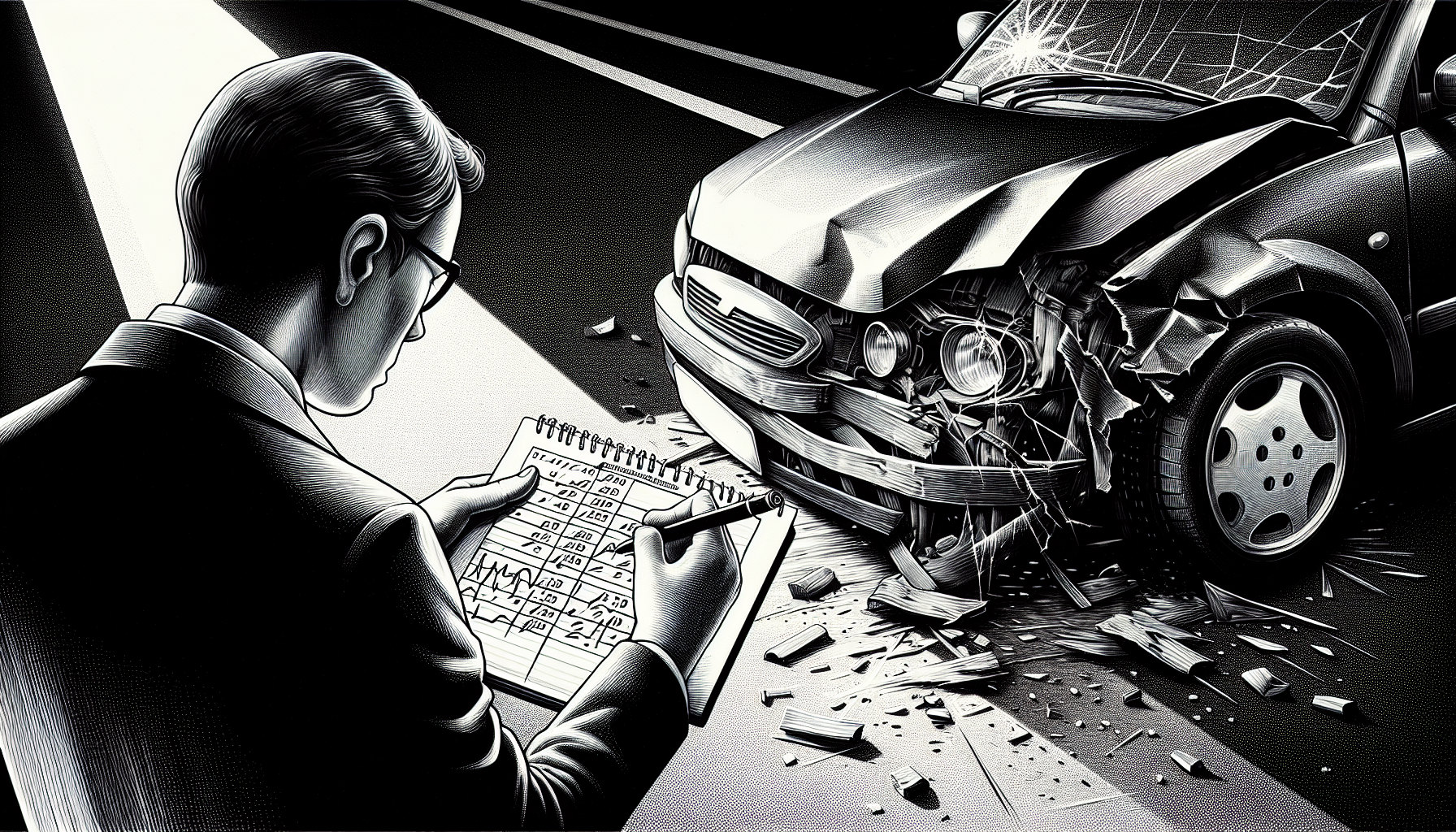
Settling a car accident without a lawyer can be tough but many accident victims do it to save money. The decision to go solo requires guts as you’ll be managing your injury claim from the wreckage of the car crash to the final handshake of the settlement agreement.
Settling a car accident claim involves several steps:
-
Calculate your damages by documenting everything.
-
Write a demand letter to start negotiations and get a fair settlement.
-
Negotiate with the other driver and insurance companies, stay focused and manage each step to settle a car accident with precision and strategy.
Calculating Car Accident Damages
After a car accident you’re in physical pain, emotional distress and your car is damaged. You need to stabilize yourself and calculate the full extent of your losses. That means not just the visible damage to your car and the injuries but the invisible – lost wages, medical bills and potential long term suffering.
Documentation is your best friend. By getting estimates from reputable car repair shops and medical providers you’re building the foundation of your car accident claim. It’s a tedious process but it pays off. Keep a record of every expense, every doctor’s appointment and every day you miss work so you can get fairly compensated for every economic and non economic damage you’ve suffered.
Writing Your Demand Letter
The demand letter is your chance to tell your story – to describe how the accident has affected your life and to quantify your losses. It’s a critical document that sets the tone for negotiations. Writing a demand letter is like charting a course for a voyage – it requires clarity, direction and knowledge of the destination – in this case a fair settlement from the insurance company.
In this letter you’ll outline the car accident details, the damages incurred and the compensation you want. It’s your first official communication with the insurance company and it serves two purposes: to start negotiations and to show you mean business. You’re not just a number in a file; you’re a person with a car accident settlement case.
Negotiating a Settlement
Once your demand letter is sent the negotiation process begins. The insurance adjuster will review your claim and make an offer. This is where your mettle will be tested. The first offer is usually a lowball, a test to see if you’ll take the first offer thrown your way. But remember you don’t have to accept if it’s not fair.
If you don’t like the offer it’s your right to counter or decline. This is where your preparation pays off. Your detailed self evaluation of damages and your well crafted demand letter are your guiding stars. Be prepared to stand your ground and back up your counter with evidence. And if the negotiation seas get too rough remember you always have the option to seek legal representation to help navigate you to a fair settlement.
Going it Alone with Insurance Companies
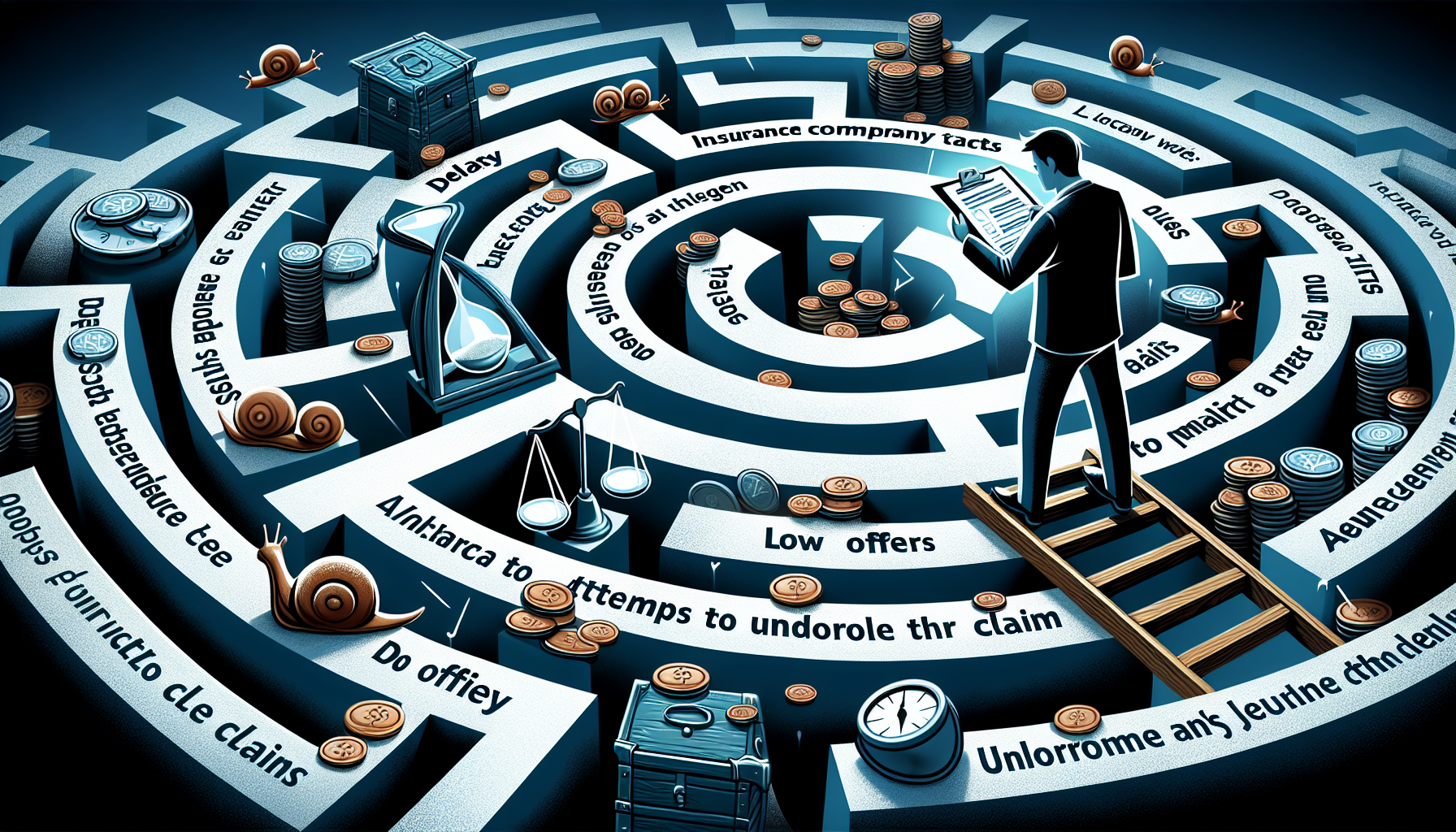
Handling a car accident claim without an attorney requires you to be ready to counter the moves of insurance companies. Dealing with these corporate behemoths can be scary but remember your claim compass points to fair compensation and you can’t be swayed from that course. Keep your dealings with insurance companies simple and refer back to your demand letter and documentation – this is your contract, your declaration of purpose.
Insurance Company Tactics
Insurance adjusters, masters of negotiation, will often pretend to be your friend to catch you off guard. Be cautious, their strategies are designed to protect their bank account not yours. They may ask for a recorded statement to find inconsistencies or admissions that will hurt your claim. And by asking for blanket medical authorizations they hope to find pre-existing conditions to challenge your claim.
These are not just hurdles; they are tests. Adjusters may:
-
Downplay your medical treatment and expenses
-
Mislead you about the coverage
-
Use delay tactics to rush you into a settlement
-
Make an offer to close your claim before you understand its value
Your defense against these tactics is a complete and accurate medical history and knowledge of your policy.
Get the Most from Your Settlement
Settling a car accident claim without an lawyer requires some finesse especially when it comes to getting the most from your settlement. An accurate valuation of your claim should be the foundation of your negotiations. Your documentation of damages, expenses, and losses will be your strongest asset in this process.
Knowledge of the law and the fine print of your policy can be the difference between a fair settlement and one that covers all of your injuries and damages. Remember insurance companies play the long game and count on you not knowing the law. But with research and the facts on your side you can navigate to a settlement that reflects the value of your claim.
After the Accident
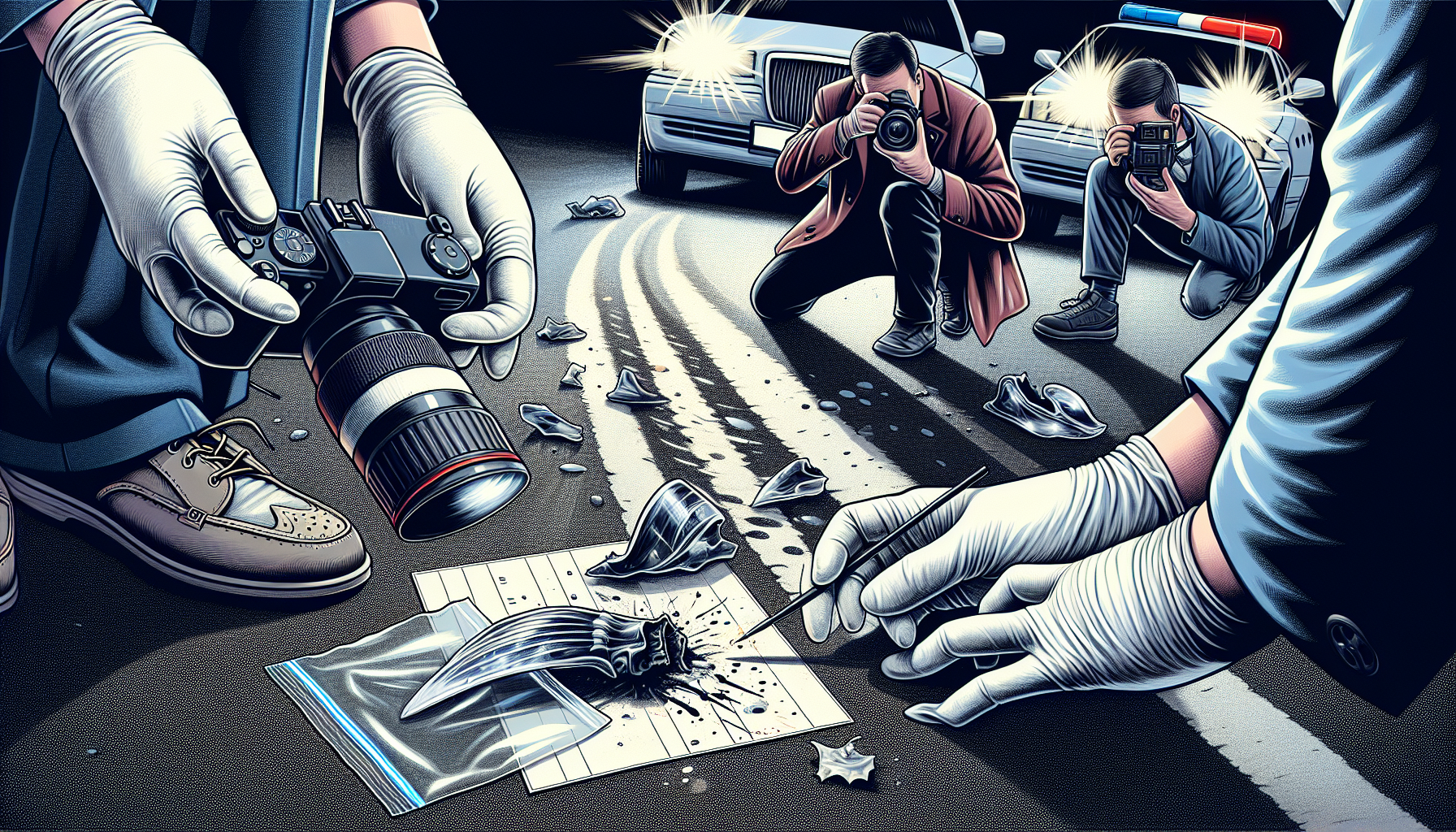
The saying ‘the pen is mightier than the sword’ applies when documenting a car accident claim. Every piece of evidence, including the police report, every bill, every other report is the foundation of your case and must be protected with care.
From the moment of the accident to the end of the claim your diligence in gathering and organizing information will be your armor against insurance company tricks.
Gathering Evidence
The moments after an accident are crazy, but they are also the most critical time to gather evidence that will be valuable later. Photograph everything: the damage to your vehicle, the accident scene, any visible injuries. These will be facts that can’t be disputed. Also get statements from witnesses – their perspective may give you valuable information about what happened before the accident.
Do this throughout your claim process. Here are the steps:
-
Save any physical evidence.
-
Consider diagrams or additional photos that will help reconstruct the accident.
-
This evidence can be powerful in negotiations or if necessary in court where the clarity and detail of your documentation can be the deciding factor.
Medical Treatment
Your health is first and foremost and your medical treatment is a part of your car accident claim. As you recover keep detailed records of all medical appointments, prescriptions and treatments. These documents will be proof of your injuries and will also document your journey of recovery and the costs associated with it.
Also make sure to follow through with your doctor’s recommended treatment to the end. Any gaps or early cessation of treatment can be used by the insurance company to question the extent of your injuries. Make sure every medical bill and report is accounted for and your medical treatment narrative is complete and unbroken.
Financial Loss Records
The financial impact of a car accident can be just as debilitating as the physical injuries. So make sure to keep a detailed record of all financial losses related to the accident. This includes not only medical bills but also records of lost income and out of pocket expenses as you recover.
By keeping these records you will have a clear picture of the financial impact the accident has had on your life. This will help you justify the compensation you are seeking and make sure every dollar spent and every hour worked is accounted for in your final settlement.
Time is of the Essence: Statute of Limitations
Time waits for no one and time is particularly relevant when it comes to the statute of limitations for car accident claims. One to six years depending on your state the statute of limitations sets a deadline on when you can file.
If you miss this deadline the consequences are severe – you lose your right to sue and your claim is void. It’s a mechanism to ensure the timeliness and reliability of evidence and witness testimony.
Be aware of this deadline as it can also be used as leverage by insurance companies to offer lower settlements if they think you’re running out of time.
When to Get Legal Help
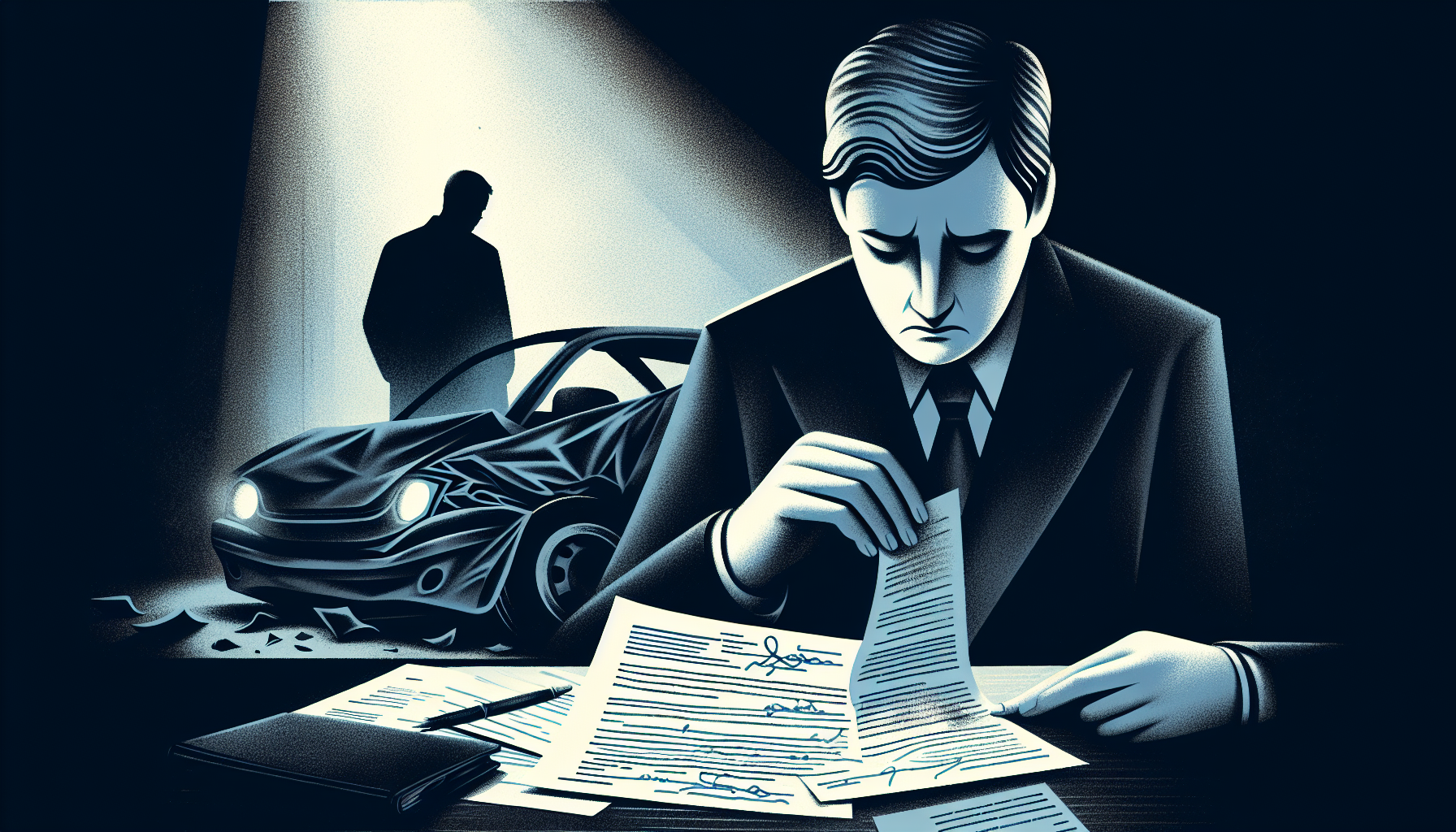
While settling a car accident claim on your own has its advantages. There are situations where an experienced car accident attorney is worth their weight in gold. In cases of serious injury, wrongful death or complex liability disputes an attorney can be your guide to much higher settlements than you would get on your own.
Remember insurance companies are run by their own legal teams who’s goal is to minimize their exposure. If you find yourself in disputes over fault or counterclaims in a personal injury case an attorney can be a lifesaver. Free consultations are widely available so seeking legal advice is a no risk move that may give you a clearer picture of your claim’s landscape.
Pain and Suffering Claims on Your Own
Pain and suffering are the intangible parts of a car accident claim. They are the mental anguish and physical pain that don’t always have a price tag but are real and compensable. To claim these noneconomic damages you need a treasure trove of evidence that can include medical records, witness testimony and a pain diary that chronicles your daily struggles.
Calculating pain and suffering is an art in itself. Methods like Per Diem or Multiplier can be used, assigning a daily rate to your suffering or multiplying your actual costs to represent the severity of your distress. While managing this part of your claim on your own can be complicated it’s not impossible with research and preparation.
And if it gets too complicated a consultation with a personal injury attorney may be what you need to clear things up.
The Pros and Cons of Going Lawyer-Free
Settling a car accident claim without legal help is a process that has its advantages and disadvantages. The pros are:
-
You save on legal fees which can be big if your case goes to court.
-
It may be faster.
-
You have more privacy since settlements outside of court are not public record.
But the cons are the storms you may encounter along the way. Without legal representation you may face challenges from insurance companies that will deny liability or assign you partial fault to reduce your settlement. Without an experienced captain in the form of a personal injury attorney it will be harder to chart the best course for your claim.
Litigation Preparation
If negotiations don’t work out you may be headed for court. If that’s the case you need to get familiar with court procedures and review your case in detail.
Practice your testimony, anticipate questions and prepare your answers are all part of getting ready for the storm of cross examination. While the thought of litigation may seem overwhelming, proper preparation can be the difference between being lost at sea and reaching the shore of a fair settlement.
Conclusion
As we reach the end of our navigational guide it’s clear that settling a car accident claim on your own is a process of hard work, dedication and strategic thinking. From the initial damage evaluation to the detailed documentation of every detail your effort is the compass that guides you to a fair settlement. Settlement negotiations require not just knowledge of your own claim but understanding of the insurance company’s tactics and the legal landscape you’re in.
Whether you decide to settle your car accident claim on your own for speed, to save legal fees or for personal satisfaction it’s important to consider the pros and cons. And if the winds turn against you knowing when and how to get legal help can be your lifeline. With this article you’re now better equipped to navigate the choppy waters of car accident claims and hold on to self representation.
FAQs
How do I calculate the amount to ask for in my car accident settlement?
To calculate the amount for your car accident settlement start by listing all damages including vehicle repair costs, medical expenses, lost wages and pain and suffering. Use the Multiplier method or Per Diem method to calculate noneconomic damages and support your claim with medical records and a detailed journal of your daily activities.
What should I watch out for with insurance adjusters?
Watch out for insurance adjusters who will use friendly tactics to reduce your payout by asking for recorded statements or full medical history. Stay focused, review your documents and don’t feel pressured to accept quick settlement offers.
Is there a time limit to file a car accident claim?
Yes there is a time limit to file a car accident claim which is governed by the statute of limitations. This time limit is usually one to six years from the date of the accident. If you miss this deadline you’ll lose your right to sue.
When should I get a lawyer for my car accident claim?
Consider hiring a lawyer for your car accident claim if it involves serious injuries, wrongful death, or complex liability issues. Legal help is also crucial if there are disputes over fault or if you’re facing a countersuit. A lawyer can get you a higher settlement and help navigate the legal maze.
Can I do a pain and suffering claim on my own?
Yes you can do a pain and suffering claim on your own by providing enough evidence but getting legal advice may help you get more out of your claim.


